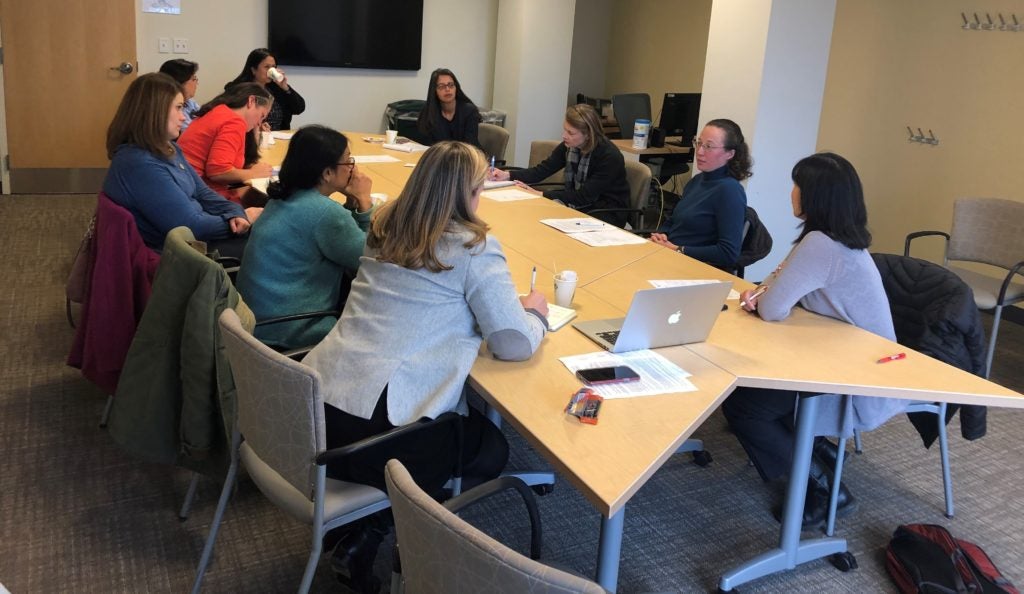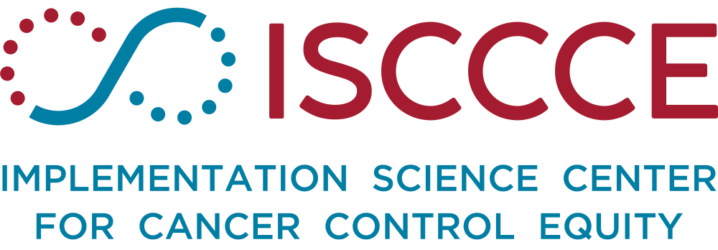
The goal of the Implementation Science Center for Cancer Control Equity (ISCCCE) is to develop and test strategies to improve cancer prevention and control practices and health equity in Massachusetts community health centers. To achieve this, the ISCCCE aims to, in collaboration with the Massachusetts League of Community Health Centers, build strong, strategic and sustainable partnerships with 30 community health centers (CHCs) in Massachusetts. Participating health centers are engaged in different ways. For the first two years of the grant, four health centers are active pilot sites and the all of the health centers are part of the learning community. In future years, other learning community health centers may engage as pilot sites as well.
This community of health centers across Massachusetts has been developed to increase implementation science in community health settings, enable a range of studies on the adoption and implementation of cancer prevention and control strategies, and allow for rapid-cycle testing of innovative approaches in settings that serve populations with health disparities. Health centers will be offered a range of implementation support elements, including a virtual and in-person learning community to enhance organizational capacity, an implementation support team to guide integration of evidence-informed strategies into clinical practice and an implementation practitioner to provide ongoing technical assistance to pilot study sites. Center aims are to:
1. Develop a Learning Community to build capacity and implementation readiness among Massachusetts community health centers and provide support for pilot study implementation and evaluation of evidence-based interventions among a subset of sites that are ready to undertake implementation activities.
2. Form a Data Management Unit to coordinate data collection, data sharing, and data-related communication across health center partners and ISCCCE investigators.
3. Establish a Practice Surveillance Unit to monitor ongoing implementation activities, track outcomes of the rapid-cycle pilot studies, inform the development of future pilot studies, and assess unintended negative impacts on other health equity initiatives across the community health centers.
Check out our Pilot Studies page for more details about our research.
